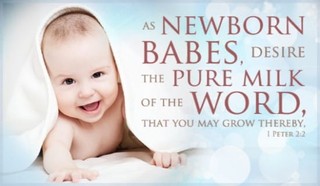
- Recent Translations
- All Translations
1 Peter 2:10
Share
Settings
1 Peter 2:10 Meaning and Commentary
Which in time were not a people
A "Loammi" being put upon them; see ( Hosea 1:9 Hosea 1:10 ) ( 2:23 ) to which the apostle here refers: God's elect, whether among Jews or Gentiles, were, from eternity, his chosen people, and his covenant people; and, as such, were given to Christ, and they became his people, and his care and charge; and he saved them by his obedience, sufferings, and death, and redeemed them to himself, a peculiar people: but then, before conversion, they are not a people formed by God for himself, and his praise; nor Christ's willing people, either to be saved by him, or to serve him; nor are they, nor can they be truly known by themselves, or others, to be the people of God: the Syriac version gives the true sense of the phrase, by rendering it "these who before were not" (Nwbvx) , "reckoned or accounted a people"; that is, by others:
but are now the people of God;
being regenerated, called, and sanctified, they are avouched by God to be his people; they have the witness of the Spirit to their spirits, that they are the people of God; they can then claim their relation to God, and are known, acknowledged, and called the people of God, by others:
which had not obtained mercy, but now have obtained mercy;
being called formerly, Loruhamah, ( Hosea 1:6 ) ( 2:23 ) which passages the apostle has in view: before conversion there is mercy in God's heart towards his elect, and so there is in the covenant of grace, and which was shown in the provision of his Son, as a Saviour, in the mission of him, and redemption by him; but this is not manifested to them, until they are begotten again, according to abundant mercy, and then they obtain mercy; having in their regeneration an evident display of the mercy of God towards them, and an application of his pardoning grace and mercy, through the blood of his Son, unto them.
1 Peter 2:10 In-Context
Footnotes 1
- [a] I have endeavoured to express the perfect participle of the verb 'to show mercy' by 'enjoying mercy,' and the aorist participle of the same verb by 'having found mercy.' See Hos. 1.10; 2.23.
